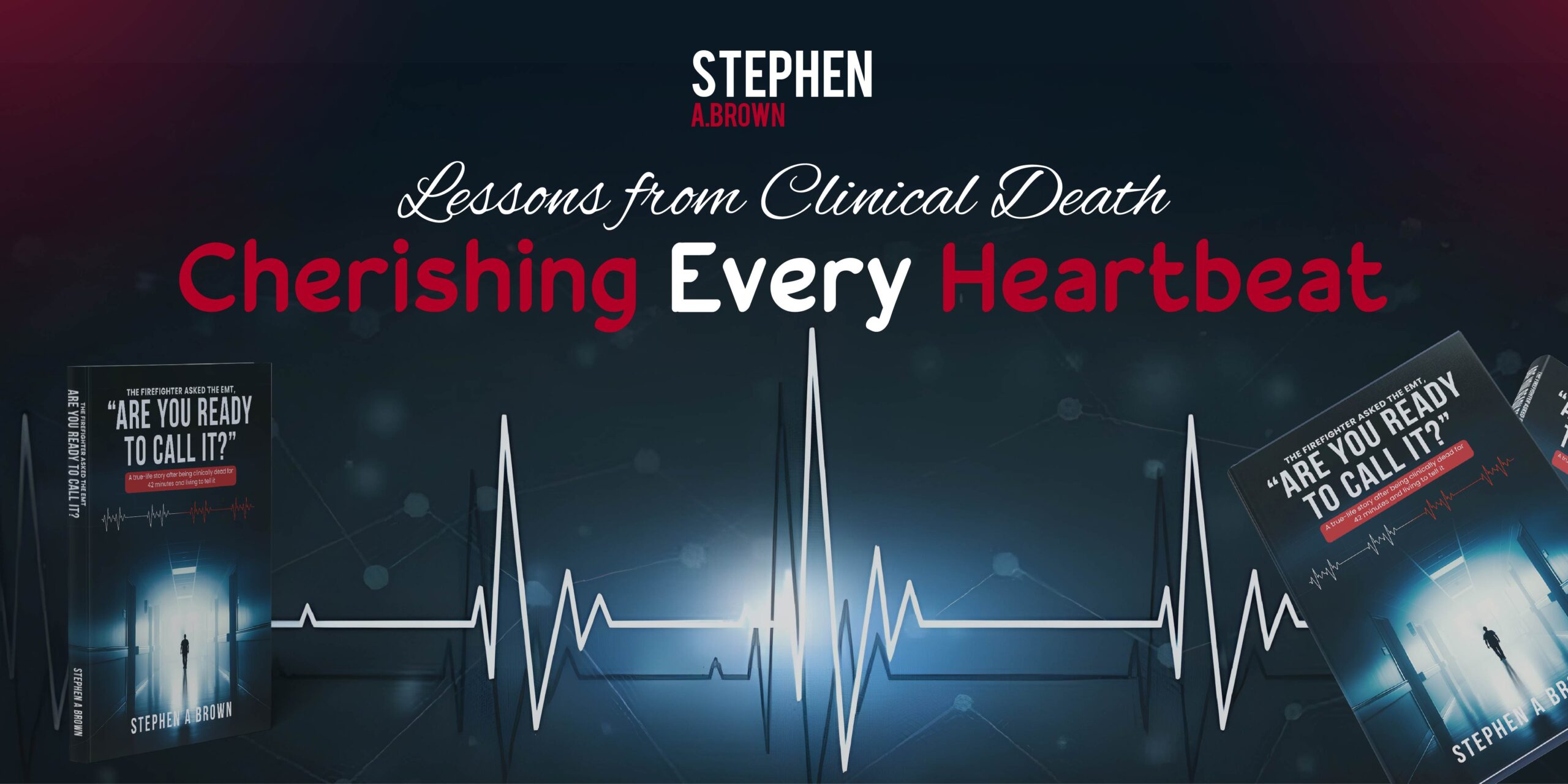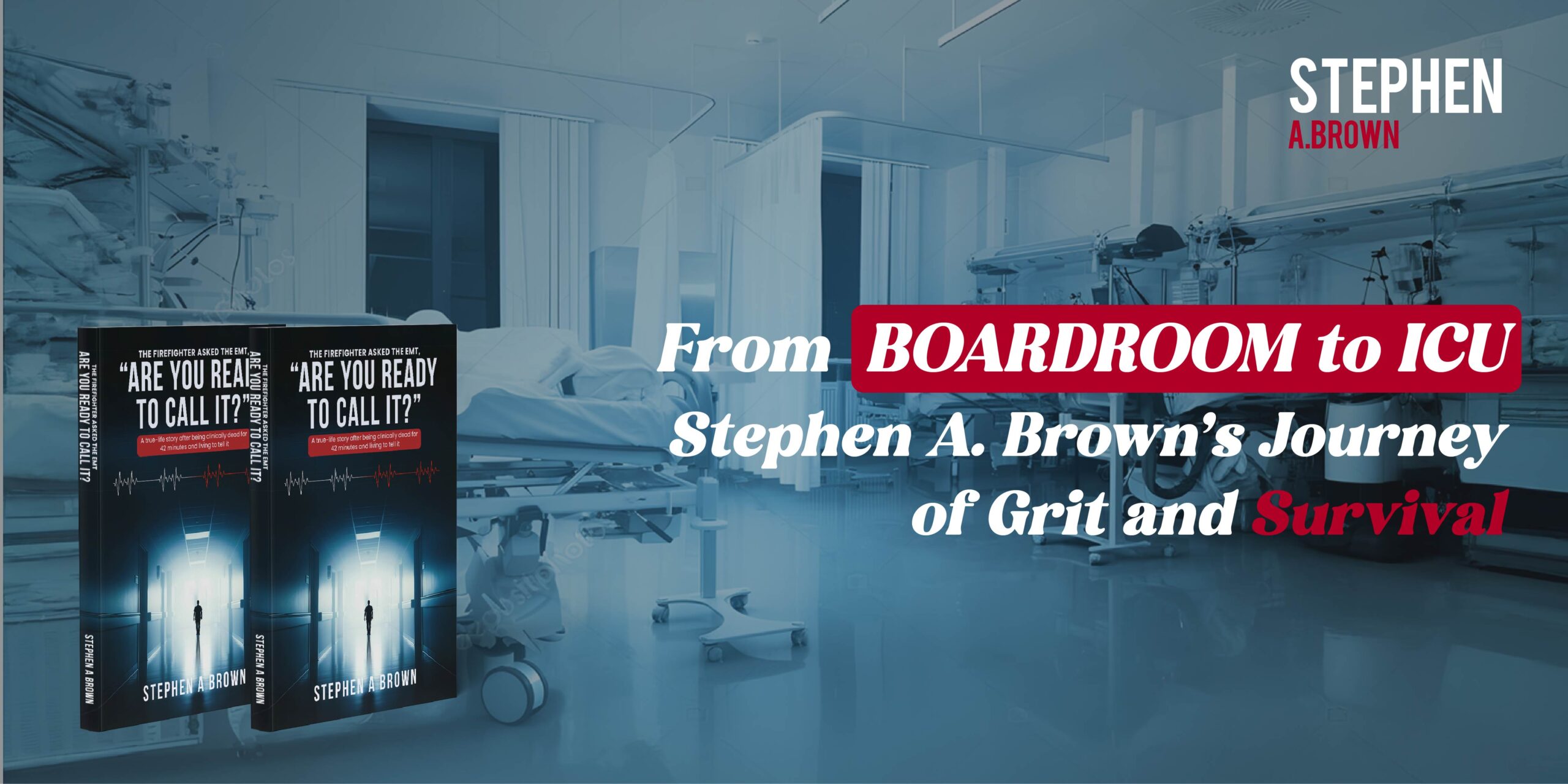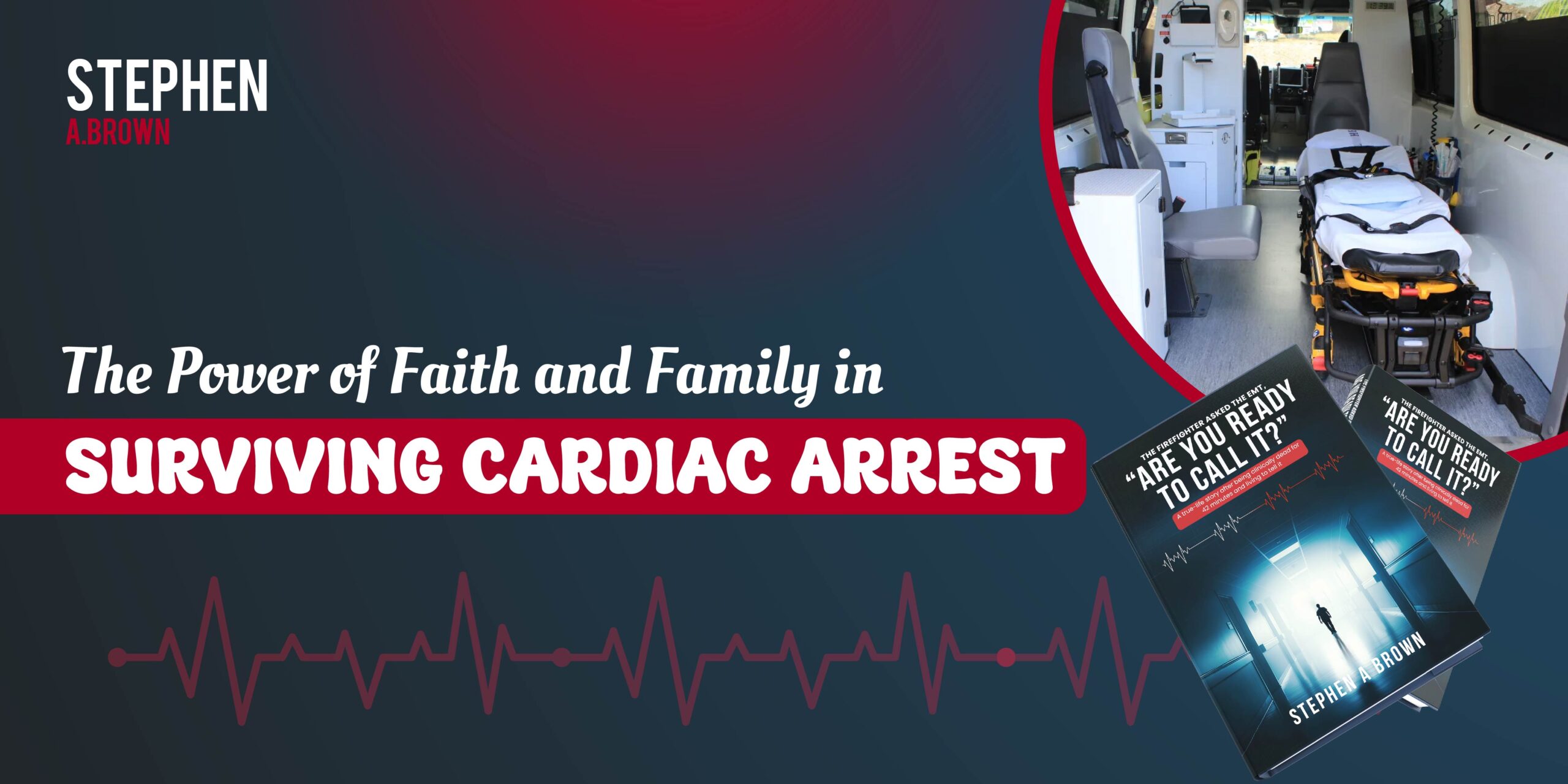Life always has events that make a clear separation between before and after. For Stephen A. Brown, that moment happened when his heart stopped for 42 minutes. In his book Are You Ready to Call It? he shares how he flatlined three times, how doctors struggled to bring him back, and how survival left him with brazen truths too deep to ignore.
His story is not just about medicine. It is about wonder, faith, and the fragile beauty of being alive. The lessons from clinical death he carries are not his alone. But they are gifts for anyone who listens.
Forty-Two Minutes Without a Pulse
Imagine being clinically dead for almost three-quarters of an hour. No heartbeat. No steady rhythm in the chest. For 42 long minutes, Stephen’s body lay in silence. His doctors and nurses refused to give up, performing CPR again and again, shocking his heart, fighting against time itself.
Most people do not return from that. Yet, Stephen did. Somehow, he came back with a heartbeat, and with it, a new way of seeing the world. That is the first of many lessons from clinical death: life is borrowed time. We do not own a single heartbeat. Instead, every single one is a gift.
The Fragile Line Between Life and Death
Before that day, Stephen was like any of us, planning, scheduling, worrying about tomorrow. Afterward, tomorrow no longer felt guaranteed. He had lived on the line where life slips away.
Surviving cardiac arrest taught him something simple but sharp: the future is not promised. We may think we have years, but in truth, all we ever hold is today. This does not mean we should live in fear. Instead, it means we should live awake. Waking up to the nature and beauty outside; to our loved ones near us; to the reality that even the most meaningless moment matters.
Seeing the World Again
When Stephen woke after those 42 minutes, the world looked different. Coffee tasted richer. The sunlight felt warmer. Even the sound of a loved one’s voice carried more weight.
Another lesson from clinical death is: survival alters your vision. The little things stop feeling little. Everything from the smell of rain and the laughter of a child to the beat of your own heart suddenly matters. Just remember, you don’t have to survive cardiac arrest to see it. Simply notice it, and stop moving through life as if it were no big deal.
What Endures in the Silence
When Stephen’s heart stopped, his career, possessions, and schedules stopped with it. None of that mattered. What remained was love. And the family who held his hand. The prayers whispered outside the hospital room. The faces of people who refused to let him go.
He came back knowing one of the clearest lessons: relationships are everything. And arguments, grudges, and pride shrink in the face of silence. Additionally, what endures is connection, love given, love received.
Carried by Faith
Stephen’s story is also about faith. Medicine kept his body alive, but he believes something greater carried him through the silence. Many who survive such moments speak of the unseen, of being held by God or by grace. For Stephen, this faith became an anchor.
Stephen’s lessons from clinical death often return to this truth: we are not only physical bodies. When the body fails, it is faith, hope, and love that hold us steady.
Living With Purpose
When you are given back time you should not have had, you cannot live the same way again. For Stephen, surviving cardiac arrest meant asking new questions. What am I meant to do with this second chance? How do I spend the days I wasn’t supposed to have?
The lessons from clinical death turned into a call for purpose. And so, life stopped being about chasing approval or achievements. It became about meaning, about helping others, about sharing his story so people would learn without having to suffer the same way.
That is perhaps the greatest gift of survival: the chance to live differently. To live slower, to live more honestly. And perhaps, to live in gratitude.
The Gift of Every Heartbeat
At the center of Stephen’s story is the simplest truth: a heartbeat is a miracle. Forty-two minutes without one makes every pulse afterward feel sacred.
We do not need to be shocked back to life to understand this. Place your hand on your chest right now. Feel the rhythm. That steady thud is not guaranteed. It is grace.
Stephen Brown’s journey shows Love for the small joys, for the people who matter, and for the fragile gift of being alive.
Closing Thought
Stephen A. Brown should not have survived those 42 minutes. Yet he did. And in doing so, he came back with wisdom we cannot ignore. The teachings of clinical death that he shares are simple: forgive fast, love deeply, see the beauty around you, and never forget that time is fragile. However, its beauty is endless if we learn to value every heartbeat.



